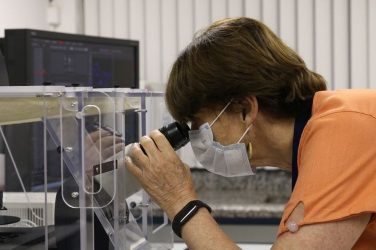The Brazilian Navy finalized on May 10th the first stage of the process that will result in the construction of four Tamandaré class corvettes. The kickoff was a public announcement inviting Brazilian and foreign companies and consortiums to participate in a future bidding process through which the party responsible for building these ships will be chosen.
Those interested must have proven experience building technologically complex military vessels with the potential to move more than 2,500 tons. Within a month, 21 companies and consortiums from different countries answered the Navy’s initial announcement. The next step will take place during the second half of 2017 with the release of the technical specifications of the ship’s design.
Acquiring the corvettes is one of the Navy’s top priorities, along with developing new conventional and nuclear-powered submarines, said Rear Admiral Petronio Augusto Siqueira de Aguiar, head of the Navy’s Program Management Board.
He explained that the decision regarding the Tamandaré class vessels is based on a broader objective of expanding and modernizing the Brazilian Navy’s operational capacity. After that, a series of surface vessels is expected to be acquired, which includes not only corvettes, but also frigates, logistic support vessels, and amphibious ships.
“The main advantage of acquiring Tamandaré class corvettes is the new ship’s flexibility, able to perform an array of tasks like protecting naval units, attacks on submarines, patrolling Brazil’s territorial waters to protect economic activities, and even participating in areas under the auspices of international organizations in support of our foreign policy,” Rear Adm. Petronio stated.
Security and Comfort
The Navy’s squadron includes two corvettes, both built at the Navy Arsenal in Rio de Janeiro and “employed in various missions throughout Brazil’s territorial sea [nearly 22 kilometers from the coast] and abroad,” explained Rear Admiral Flávio Augusto Viana Rocha, director of the Navy’s Social Communications Center.
The first to join the Brazilian warship fleet was the corvette Inhaúma, in 1989. While the corvette Barroso came along nearly 20 years later, in 2008, and has been used in the peacekeeping mission in Lebanon, in which it was the flagship vessel until March.
According to Rear Adm. Rocha, the Inhaúma and Barroso corvettes shall remain in service, even after the Tamandaré class corvettes have joined the fleet.
Several aspects of the new corvettes’ design have been highlighted as significant enhancements in relation to the vessels currently in operation. Among them is being stealthier as a result of redefining the design of the hull lines to reduce the ship’s visibility on enemy radar screens.
“The issue of stealth is related to the secrecy of operations and the ability to conceal the ship,” Rear Adm. Petronio explained. With that “the corvettes will be able to operate discretely in an area of interest and enable the element of surprise when conducting their activities in our territorial waters,” he added.
The design of the Tamandaré class corvettes also involves innovation in terms of service members’ comfort and security, in addition to environmental concerns.
Thus, the ship’s interior layout was designed to provide better conditions for those who are going to work inside of it. It is expected to accommodate 136 people, to include crew members, divers, marines, pilots, and aircraft mechanics.
In terms of the service members’ security, it aims to apply better monitoring resources of the ship’s various areas, and to incorporate labor-saving technologies in flood and fire prevention systems.
Additionally, a few technologies expected to be employed on these corvettes will reduce gas emissions and improve the treatment of sanitary waste, kitchen waste, and oily residue.
Regarding these ships’ combat system configuration, consisting of weapons, sensors, a tactical system, and weapons-firing direction systems, Rear Adm. Petronio stated that they “will have the necessary requirements for top-notch operation in surface, anti-air, electronic, and anti-submarine warfare actions.”
Investment in the four Tamandaré class corvettes is estimated to reach upwards of US$ 1.8 billion. In the project’s initial timetable, construction of the vessels is scheduled to commence in 2019. Deliveries are expected to occur within three years, between 2022 and 2025.
The four vessels should preferably be built in Brazil, Rear Adm. Petronio said, but the Navy believes it is necessary to select a foreign shipyard with proven experience in making this type of ship. By doing so, risks are expected to be mitigated in developing and obtaining the ships’ expected performance.
“A foreign shipyard’s participation will enable Brazilian candidates to acquire the qualifications to execute the project, through the necessary transfer of technology,” Rear Adm. Petronio said.
This article appeared originally in Diálogo – https://dialogo-americas.com














